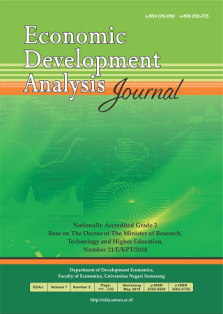Effectiveness of E-Billing System in Tax Payments for Taxpayers
Abstract
The application of e-Billing system in facilitating tax payment services for taxpayers is still complained about in its use. This study aims to determine the effectiveness of the e-Billing system in tax payments as well as the use constraints for taxpayers in the Tax Office Batang. The type of this research is quantitative research with percentage descriptive analysis technique. Sources of data obtained from the distribution of questionnaires and interviews with taxpayers who have used the e-Billing system independently with accidental sampling techniques. The results showed that the effectiveness of the e-Billing system in the payment of taxes for taxpayers in Tax Office Batang with taxpayer research subjects who have used the e-Billing system independently is still less effective. This is because taxpayers still find the quality of the system that is still often disturbed and the quality of information that is felt to have not been spared errors, as well as the lack of effective success of targets with low levels of use independently. Constraints on the use of e-Billing systems for taxpayers include internal obstacles from technological capabilities, awareness of taxpayers, taxpayer accuracy, and external constraints from server down, facility limitations, instability of internet taxpayers' connections. The advice given is the need for attention to the quality of thesystem e-Billing by the Directorate General of Tax as the organizer of the system given the system that is often down, such as applying a tax payment limit date based on the type of tax to minimize solid use by taxpayers. The need for socialization both materially and practically, providing knowledge about the types of taxes and types of deposits, as well as giving directions to taxpayers to act more carefully in filling out electronic deposit papers on the e-Billing system to minimize errors and repetition of making codes Billing


